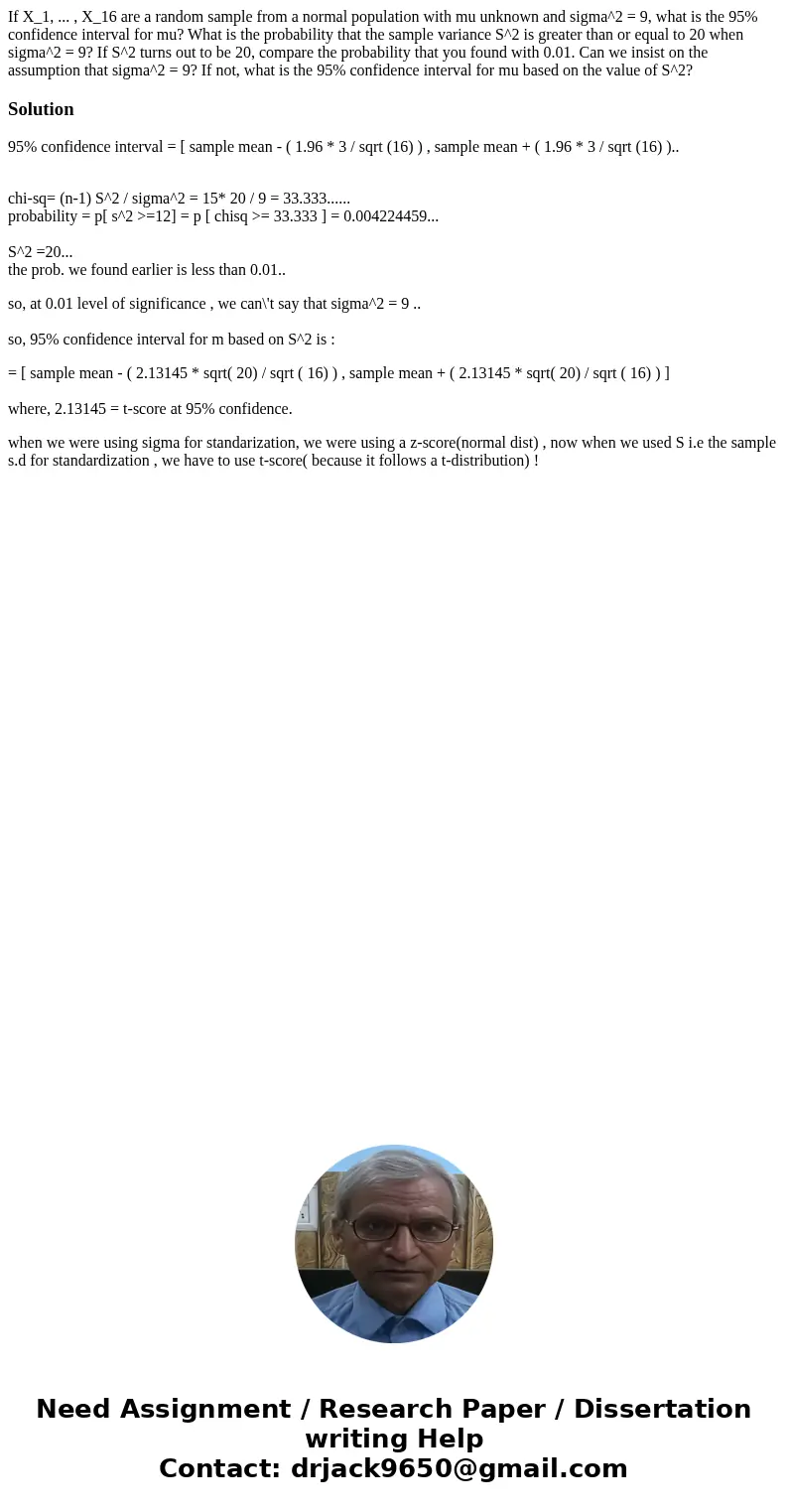If X1 X16 are a random sample from a normal population wit
Solution
95% confidence interval = [ sample mean - ( 1.96 * 3 / sqrt (16) ) , sample mean + ( 1.96 * 3 / sqrt (16) )..
chi-sq= (n-1) S^2 / sigma^2 = 15* 20 / 9 = 33.333......
probability = p[ s^2 >=12] = p [ chisq >= 33.333 ] = 0.004224459...
S^2 =20...
the prob. we found earlier is less than 0.01..
so, at 0.01 level of significance , we can\'t say that sigma^2 = 9 ..
so, 95% confidence interval for m based on S^2 is :
= [ sample mean - ( 2.13145 * sqrt( 20) / sqrt ( 16) ) , sample mean + ( 2.13145 * sqrt( 20) / sqrt ( 16) ) ]
where, 2.13145 = t-score at 95% confidence.
when we were using sigma for standarization, we were using a z-score(normal dist) , now when we used S i.e the sample s.d for standardization , we have to use t-score( because it follows a t-distribution) !

 Homework Sourse
Homework Sourse